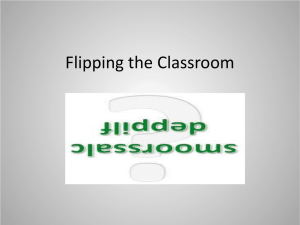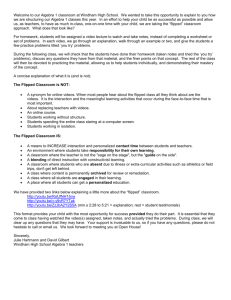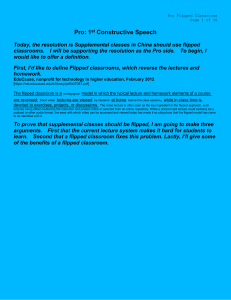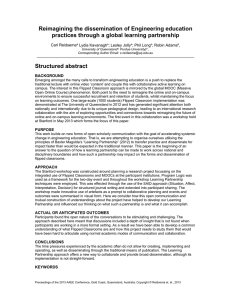"Student Views of Flipped Physics Classrooms Online Physics"
advertisement
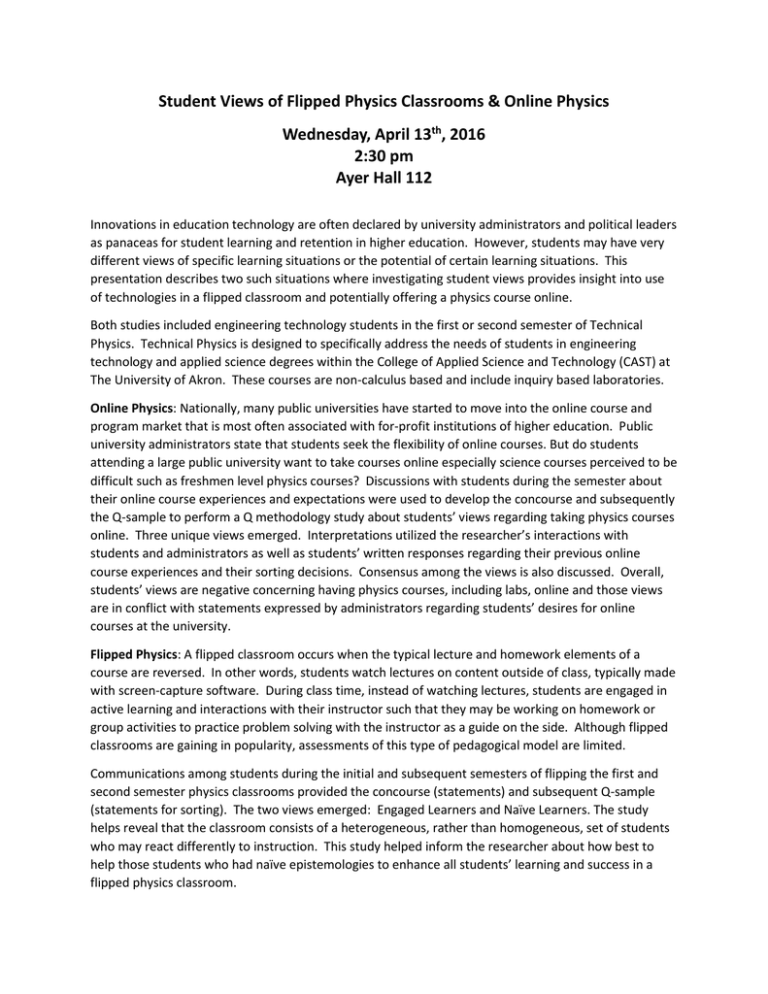
Student Views of Flipped Physics Classrooms & Online Physics Wednesday, April 13th, 2016 2:30 pm Ayer Hall 112 Innovations in education technology are often declared by university administrators and political leaders as panaceas for student learning and retention in higher education. However, students may have very different views of specific learning situations or the potential of certain learning situations. This presentation describes two such situations where investigating student views provides insight into use of technologies in a flipped classroom and potentially offering a physics course online. Both studies included engineering technology students in the first or second semester of Technical Physics. Technical Physics is designed to specifically address the needs of students in engineering technology and applied science degrees within the College of Applied Science and Technology (CAST) at The University of Akron. These courses are non-calculus based and include inquiry based laboratories. Online Physics: Nationally, many public universities have started to move into the online course and program market that is most often associated with for-profit institutions of higher education. Public university administrators state that students seek the flexibility of online courses. But do students attending a large public university want to take courses online especially science courses perceived to be difficult such as freshmen level physics courses? Discussions with students during the semester about their online course experiences and expectations were used to develop the concourse and subsequently the Q-sample to perform a Q methodology study about students’ views regarding taking physics courses online. Three unique views emerged. Interpretations utilized the researcher’s interactions with students and administrators as well as students’ written responses regarding their previous online course experiences and their sorting decisions. Consensus among the views is also discussed. Overall, students’ views are negative concerning having physics courses, including labs, online and those views are in conflict with statements expressed by administrators regarding students’ desires for online courses at the university. Flipped Physics: A flipped classroom occurs when the typical lecture and homework elements of a course are reversed. In other words, students watch lectures on content outside of class, typically made with screen-capture software. During class time, instead of watching lectures, students are engaged in active learning and interactions with their instructor such that they may be working on homework or group activities to practice problem solving with the instructor as a guide on the side. Although flipped classrooms are gaining in popularity, assessments of this type of pedagogical model are limited. Communications among students during the initial and subsequent semesters of flipping the first and second semester physics classrooms provided the concourse (statements) and subsequent Q-sample (statements for sorting). The two views emerged: Engaged Learners and Naïve Learners. The study helps reveal that the classroom consists of a heterogeneous, rather than homogeneous, set of students who may react differently to instruction. This study helped inform the researcher about how best to help those students who had naïve epistemologies to enhance all students’ learning and success in a flipped physics classroom.
